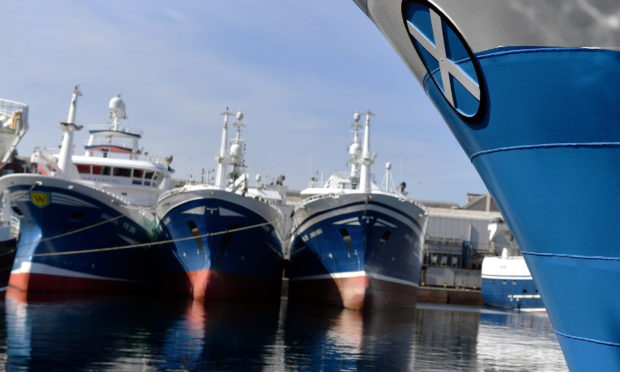The UK Government fully understands the importance of the fishing industry to Scotland.
For the first time in nearly 40 years we have the power to take back control of our own independent fisheries policies and make the sea of opportunity the Scottish industry has rightly identified a reality.
To ensure our vital fishing industry will continue to thrive in the future, the UK Government has set out a new framework for managing our fisheries through our Fisheries Bill – that has now passed through the House of Lords and moved into the Commons.
We have achieved this milestone because of all the hard work put in by officials in both DEFRA and the devolved administration in Scotland.
We owe it to our hard working Scottish fishermen to balance reaping the riches of the seas with maintaining or restoring our fish stocks to healthy levels.
For too long the EU approach has resulted in targets and measures, rules and regulations growing, but little action in actually improving the sustainability of our fish stocks.
They have taken too much of a one-size-fits-all approach where having a more local or regional approach delivers much better outcomes.
Decision-making was remote and outcomes difficult to understand.
That is why we are taking a new approach in our Fisheries Bill – one each administration can adapt based on the latest information on fish stocks from scientists, or respond to with technological innovations.
The UK Government and devolved administrations will work with the industry and local communities to deliver healthy fish stocks and a diverse marine ecosystem.
The UK Government is proposing powers in the Bill, which we hope, with the consent of the devolved legislatures, will allow each administration to amend policies faster than was possible through the cumbersome Common Fisheries Policy.
The UK Government has been and will continue to be a leader in calling for the ending of the wasteful discarding of fish at sea – and each administration will have the chance and powers to work on a new approach to ensure all catches can be landed while preventing over fishing.
When planning for the future, we mustn’t fail to recognise the immense value of fishing to our Scottish fishing communities.
We have over 4,800 fishermen in Scotland, landing some 450,000 tonnes of fish and seafood in 2018, including delicious mackerel.
The catching industry alone landed over £570 million worth of seafood in 2018, with Peterhead landing nearly a quarter of the total value in Scotland.
Like many sectors across the UK, the Scottish fisheries industry has been hit hard by the impact of Covid-19 on exports of fish, but our fishermen and women have again shown ingenuity by working on new ways to sell fresh fish direct to the door.
That is why this Bill is so important to restoring the historic wrongs that fishing communities have faced.
It is a once-in-a-generation opportunity to take back control of our natural resources.
The Fisheries Bill strikes the right balance between restoring our environment and seeing a thriving fishing industry and I hope that, as it progresses into the House of Commons, we will not lose sight of the win-win outcomes this Bill would allow us to achieve – for both our precious environment and our valuable fisheries and seafood industries.
